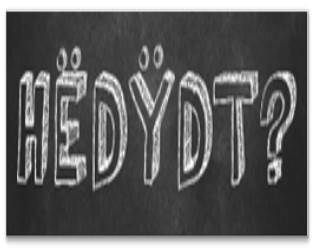Career
How Exactly Did You Do That?
Changing just one behavioral detail guarantees a different outcome.
Posted September 9, 2014

Maybe you work with someone who fairly regularly shows up about 7 minutes late for team meetings, a bit out of breath, often with a lanyard full of keys and several noisy plastic bags, interrupting the meeting in progress to apologize for the tardy arrival. “The traffic!” she will announce, by way of explanation.
If she has lived here for more than 2 weeks, then she already knows about the traffic. She’s not late because of the traffic. And she certainly is not almost exactly 7 minutes late, repeatedly, because of the traffic. No, she is in much greater control of her arrival time than she acknowledges. As long as she continues to report, and perhaps to believe, that she is 7 minutes late because of the traffic, she will never make a significant change in that behavior.
The only reason this matters – and it really really does matter – is that some people in our culture value showing up on time. Some of us are flexible and relaxed and believe that as long as the work gets done, details like starting and stopping times don’t matter as much. But others (and incidentally, these others are often the ones who find themselves in supervisory roles) are less accommodating. Some of my clients have lost jobs, or suspect that they been passed over for promotions, for exactly these little details.
Metacognitive coaching
So if you really want to support the employee – or client, or sister, or spouse – in this scenario, you would do well to ask her “How exactly did you do that?” In my workshops on the topic of executive functioning, I use the awesome mnemonic HËDŸDT - which looks like either a heavy metal band or a Danish ice cream because I’ve added those cool umlauts - to remind us to ask this specific and important and supportive question. And each word relates to a key feature of this inquiry:
- How – we are asking for specific behavioral information here. Right now we are not asking “why” questions or seeking complex psychological underpinnings of behavior. We are supporting the employee in identifying a specific sequence of behaviors and choice points which led to the outcome.
- Exactly – I’m not looking for a general understanding of how this employee reached this specific outcome (showing up late), but rather I seek an understanding of the exact step-by-step behavioral sequence - something which I could replicate. I imagine that I am a method actor, and I am portraying this employee in a stage play or film; do I know enough about her exact behavioral sequence – what she thinks, what she sees, what she hears in her own mind, exactly how she breathes and moves and holds her body – to get that same outcome?
- Did – we walk through this process in the past tense, after the fact. And we do it without judgment, and with sincere curiosity. It’s best, the first 5 or 10 times you practice HËDŸDT with yourself or someone you're coaching, to start with success experiences. Rather than challenging your teenager about why he broke curfew twice last month, we might inquire as to how – 29 out of 31 days – he showed up on time. How exactly did he do that? It’s not easy, he used self talk, and imagery, and speedometers, and clocks. After reviewing a few success experiences we might then move on to gently challenging others about habits like showing up 7 minutes late for team meetings.
- You – this process is intensely personal. An 8th grade teacher is likely very knowledgeable about the habits and patterns of 13-year-old boys, but he doesn’t know this particular 13-year-old boy. And we might have theories about how employees show up 7 minutes late for meetings, but I don’t know, exactly, how she does it.
- Do – this strategic inquiry is strictly focused on behaviors. I want to know, in rich detail, exactly what you said to yourself, what you said to your peers or your family, how exactly you created visual imagery and what exactly you heard in the behavioral sequence which reliably leads to a particular outcome (like showing about 7 minutes late for team meetings).
- That - my strategy for showing up 10 minutes late for staff meetings may be very different from my method of showing up 5 minutes early for a spinning class. So when we walk through this process we don’t imagine that your strategy for one outcome will generalize to another setting or another task.
Your grandma's pound cake
Okay, here’s a metaphor. Your grandmother reliably makes a fantastic pound cake, and you want to reproduce that pound cake. How exactly does she do that? I mean if you ask her what’s in this delicious cake, she'll give you some vague and impressionistic response about flour and sugar and butter. But her specific behavioral sequence must be teased apart, thoroughly understood, and replicated exactly. Substitute margarine for the butter in her recipe, and you get a different cake. Use lemon extract rather than her lemon zest, and you get a different outcome. Bake your cake in an electric oven rather than her gas oven? You guessed it, you will not get exactly the same cake.
Likewise, once your colleague understands how – exactly - she shows up 7 minutes late for team meetings then she is free to change one element of that behavioral sequence, that recipe, and is guaranteed a different outcome.
How about you?
What can you do today that you weren't able to do just one year ago? And how exactly did you do that?
Have you left a training or negative relationship? How did you do that? Where did you find the courage, who supported you the most, what did you visualize or say to yourself along the way? Could you do it again, step by step, if you had to?
What if you done that you are really proud of? You’ve taken a stand; you have spoken up for yourself or someone else. You made a career or personal choice that took courage. How exactly did you do that? If I were playing you in a movie, give me enough information so that I could convincingly re-create the whole process.
And what bad habit persists? You’ve committed to starting an exercise program, making progress toward an important goal, or putting aside an unhealthy behavior. But you’ve done something else instead. How exactly did you do that? Aside from the explanations and stories that we offer ourselves and others, how exactly have you created that in your life up until this point? And as you review the specific behavioral sequence, you might identify one particular detail you could alter. Because changing just one detail – as was the case with your grandmother’s pound cake – guarantees a different outcome.


